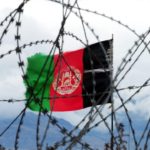As a former chairman of the U.S. Senate’s Foreign Relations Committee and vice president, Joe Biden has been closely involved in Washington’s war in Afghanistan and its complex relations with neighboring Pakistan for decades.
As Washington seeks to end the longest war in its history, Biden’s presidency is poised to tweak but not completely change the U.S. course in Afghanistan while also adjusting relations with neighboring Pakistan.
“We are likely to see more continuity than divergence from the Trump to the Biden administration in Afghanistan and Pakistan,” said Elizabeth Threlkeld, deputy director for South Asia at the Stimson Center, a Washington think tank. “In general, any changes will be more in tone and process than on substance.”
Husain Haqqani, Pakistan’s former ambassador to the United States, says the Biden administration will go ahead with a military withdrawal from Afghanistan — albeit with a caveat. “Biden will not withdraw by ceding ground to the Taliban and will definitely be more mindful of the Taliban’s continued ties to Al-Qaeda,” he told RFE/RL’s Gandhara.
Under a landmark U.S. agreement with the Taliban in February, Washington agreed to a “conditions-based” withdrawal of all U.S. and NATO troops from Afghanistan by May 2021 in return for the Taliban’s counterterrorism guarantees, peace talks with the Afghan government aimed at finding a lasting political solution, and a permanent cease-fire.
While the number of U.S. troops has already been reduced to 4,500 from 13,000 in February, the peace talks between Kabul and the Taliban appear stalled in Doha. Amid escalating attacks, a cease-fire is nowhere in sight. More crucially, the UN still sees Al-Qaeda as “heavily embedded” with the Taliban in Afghanistan.
Haqqani, now a senior fellow at the Hudson Institute think tank in Washington, says Biden and his advisers understand the importance of a stable and peaceful Afghanistan.
“They may prefer to stretch out the military withdrawal, making it truly conditional to end Taliban violence and use the extra time to apply more pressure on the Taliban and Pakistan to ensure an agreement that is a peace deal, not just a withdrawal deal,” he said.
In recent years, Islamabad has somewhat repaired its strained ties with Washington after supporting negotiations with the Taliban. Pakistan reportedly exerted pressure on Taliban leaders, some of whom are seen as dependent on sanctuaries in the country’s vast western borderlands with Afghanistan.
Haqqani says he expects the Biden administration to adopt a nuanced approach to the U.S. withdrawal from Afghanistan by prioritizing an economically and politically stable Afghanistan.
“A better policy toward Afghanistan would be to talk more to America’s allies there: the Kabul government,” he said. “And not keep giving in to the Taliban.”
In Kabul and Doha, the Afghan government and the Taliban are closely watching developments in Washington.
“It [the agreement] serves the interest of the Afghan nation and the interest of the American nation,” Taliban spokesman Mohammad Naeem told VOA. “It should not be subject to any significant change and should be implemented in the form in which it is agreed upon.”
In Kabul, senior Afghan officials are already calling on the incoming U.S. administration to review the agreement with the Taliban and reevaluate the peace process.
“As the government of Afghanistan, we didn’t sign this agreement. We were not a party to it,” Sarwar Danish, Afghanistan’s second vice president, said on November 9. “From a legal standpoint, we do not bear any responsibility about the details of this agreement.”
A former official involved in President Barack Obama’s foreign policy team in South Asia, however, does not see Washington granting all of Kabul’s wishes. Requesting anonymity because of the sensitivity of the ongoing talks, he says there is talk that Biden might ask the current U.S. peace envoy Zalmay Khalilzad to continue his efforts.











